Executive Interviews
Our Executive Interviews feature top leaders from across the disciplines that we specialise in, sharing their career advice and experience with candidates seeking success in those sectors.
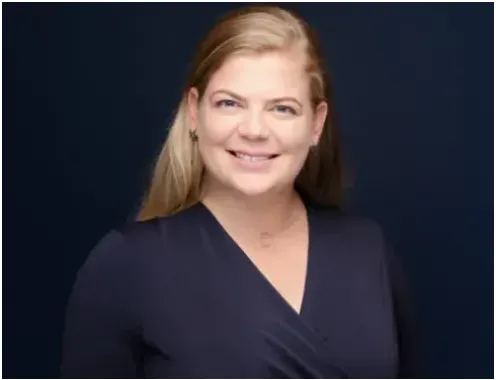
Sylwia Workowska Blokhuis - Director of Accounting at Prologis
Sylwia Workowska Blokhuis is the Director of Accounting at Prologis. Having spent over 16 years building international experience as an accounting professional in publicly listed companies across various industries, she’s a progressive and team-oriented leader.
How did you plan out your career development path?
At an early stage of my life, I knew that Finance & Accounting were areas that I wanted to focus on. I chose Finance as a major for my studies and was very motivated to start gaining professional experience as soon as possible.
In my fifth year, I asked the Dean’s permission to combine my studies with professional work; that was granted as I’d had very good grades. It gave me some time to explore the professional industry, whether it was the correct choice and direction for me and whether I should proceed with it after I graduate.
It turned out to be the right direction for me; it suited my skill set and personality and kept bringing me joy; so I have continued to pursue it for the past 18 years, taking part in new projects and setting myself ambitious goals.
As I progress, I reassess my career path and strategy; whether I'm still going in the direction I want to be going in to achieve my long-term aims.
How have you managed the changes in your career and the diversity in the sectors that you've worked in as a leader?
I have worked across consumer goods, manufacturing and logistic real estate and have had the great pleasure of working in great companies that focus on their teams, each global leaders in their respective field, who provided me growth opportunities. When I switched roles it was for personal reasons versus work-related ones; and I'm happy that I made those changes because it helped me to grow and to learn about new industries.
The way I approach change is with curiosity, trying to have a learning mindset and staying very open-minded. I want to learn as much as possible about the business: its goals, its strategy, and how my team and I can be the best support.
I also believe that success is never achieved alone. If you want to be successful in what you do, you need to build strong relationships and that usually brings the best results.
How do you retain and develop the talent in the business that you're working in? And can you give me a few examples of when you've had to champion retention?
During times of transformation, the best strategy is to stay connected. Focus on relationships and gaining a strong understanding of your team's needs. What kind of challenges do they face and how can you best help address them?
I also think that using clear, transparent communication and not being afraid to bring bad news is very critical. Sharing a hard truth is ultimately better than a sugar-coated lie. It helps build trust. Just focus on bringing the message constructively.
Business transformations offer the best opportunities to grow and develop because that is when the most change is happening. Exploring through learning and making those new connections is how people grow the most and that keeps them engaged.
If you're trying to create something entirely new, it never comes with zero frustration or a super clear path in front of you. If you have a well-balanced team that has each other’s back and supports each other, they can face any of the frustrations that change brings. When people feel connected, they see a bigger cause and a bigger picture. They tend to understand the reason why things are done a certain way.
We've had a lot of changes in this world and within your industry (COVID, remote working from a cultural perspective, and more recently Ukraine). How do you motivate professionals within your business with all these changes that we've been through and still going through?
It is important to acknowledge that those changes are happening. Don't try to pretend they are not there; they are, and people experience them, and those experiences differ per person. Try to understand individually what people are going through and see how you can help and support them.
In general, I believe in an individual approach, and again being close to people with whom you are working; together you can understand a situation and the best way to support it.
COVID, of course, took some adjustment, but surprisingly both the team and I adapted quite fast to this new situation. We figured out new ways of working together in the remote environment, which meant staying connected even more. I was quite surprised to see how well we thrived in this situation.
We found creative ways to continue achieving our goals through the online environment; it was intensive in one sense but helped us foster a culture and keep the relationships that we’d built prior. Our relationships didn’t suffer in the remote environment, but it took effort to make sure that was the case.
Motivation comes down to a healthy working culture; one that stays connected, and fosters relationships in an environment that allows us to thrive. For me, that means engaging work with growth opportunities, having an impact and being empowered to make a change, great teamwork, but also well-tailored recognition and reward for performance. In my opinion, it’s good balance that keeps people happy in the workplace.
What I appreciate in my surroundings is that we can openly discuss the challenges and work together on solutions. I feel supported by my leadership team, and as explained I'm doing my best to pass on that same support to my teams. That is what gets us through challenging times.
I'm keen to understand the risks that you've taken throughout your career, how have they helped you get to the level that you are at now?
Prologis offers a dynamic environment; each year brings challenges and some type of transformation.
Recently, I agreed to step back from managing one of my teams to allow myself more time to focus on the onboarding of new business lines. I’d managed that team for 10 years and I was very connected with them. But, as you can imagine I knew the process in and out and there were fewer learning opportunities.
It was hard, but it opened countless opportunities for me to get involved and help shape the new business lines, in many cases from scratch. That meant stepping out of my comfort zone.
Every new experience brings risks and it's not easy to let go, but doing so made space for me to grow. In the long run, getting out of that comfort zone is what brings opportunity that helps you progress your career.
How do you manage business partnering and performance management?
Business partnering is a key strategy for my department. Accounting & Finance is a support function but we have to support the business in the right way.
I reach out to our partners proactively, to ensure that we understand each other’s goals, where are we coming from, the challenges that the company faces and how we can support their business decisions by delivering the correct data when it is needed. I think there’s been good progress on being a good business partner and having a good impact.
When it comes to performance management, I’m very much data-driven… the numbers speak volumes. Obviously, I have an Accounting and Finance bias there! I do my homework: present the data, cite sources and be clear in advance on what I want to communicate.
At the same time, a number is just a number, and some numbers need a story to go along with it. I try to understand the root causes of whatever we’re facing and how to address these challenges. I like to have experts from each area, a small team, to work together on tackling particular challenges and get the best expertise on that particular focussed subject.
What would you say is the most memorable moment from your career and why?
One key moment was at an early stage of my career when I became a leader of the team that I was part of. It was quite a step to manage a team where I’d previously been a colleague.
At that stage, a whole new world opened to me. I had to give some thought to what kind of manager I wanted to be and the leadership style that most suited me. That of course, took time, it didn't happen overnight.
It's not something of which you can say “Ok, I’m done. I am now a leader”. Leadership is a journey, and you keep on learning and adjusting at every step of it, including mistakes.
I believe that I learned from them and helped myself grow. I'm happy with the steps that I’ve taken throughout my career and the progress that I’ve made.
What advice would you give to aspiring leaders who want to be in the position that you're in?
Be brave and take that first step. Even if you’re not a born leader, you have to believe in yourself. Those first steps are the hardest, but once you are in that role, you will start learning and developing and progressing through that.
Continually reassess who you are and what kind of leader you want to be. At the same time, accept that you're going to make mistakes. Learn from them and don't be afraid to show vulnerability.
Understand the expertise within the team you have. Rely on it, know your processes and stay hands-on so you can guide, coach and support when needed. Last but not least, maintain communication and transparency for strong relationships. I keep coming back to that - but for me, relationships are key to driving success and you don’t achieve it alone.
The key things we say to those aspiring to get into strategic roles are to network, and never stop learning, define what kind of leader you want to be in the early stages of your career, look at the leaders who motivate you and push forward and make those steps…
Especially at the later stages, where you are in those very elevated roles, these factors impact what kind of leader you are. It's critical to define who you want to be as a leader, that's also how you will to some extent impact and foster the culture of the organisation through that.
Thank you to Sylwia for speaking to our Finance & Accountancy recruitment team in the Netherlands, led by Hannah Mallia and David Harper.
Views and opinions contained within our Executive Interviews are those of the interviewee and not views shared by EMEA Recruitment.
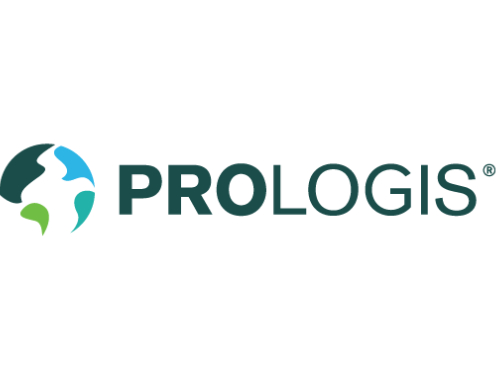
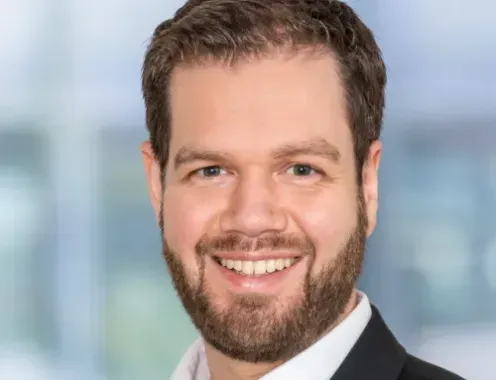
Pieter Vogels - Global Head of HR (Vice President) at Siegfried
Pieter Vogels is the Global Head of HR (Vice President) for pharmaceuticals manufacturer, Siegfried. He is responsible for the global Drug Product cluster, covering 1,800 employees at sites across Switzerland, Germany, Spain, Malta and the US. Pieter began his Human Resources career at Nyrstar and has since worked for RUAG and Dow Inc.
Your LinkedIn shows a dual degree in Software Engineering and HR. What made you choose that combination?
I’ve always been fascinated by technology and how it can drive innovation – in the way we live, work, and connect with the rest of the world. It ignites creativity and expands the boundaries of what people believe is achievable – and its potential is limitless. Process design and digital transformation were key elements of my studies.
That said, I also wanted a people-centric focus and to have an impact on individuals. The best thing about leadership and change management is getting the best out of people and technology – creating a dynamic environment in which they can thrive.
How have the two worlds come together throughout your career?
Now and in past roles, I’ve been involved in HR digital transformation through process re-design, or by implementing everything from individual tools to full system suites. As an HR Business Partner, I would advise on digital transformation within the function and how we could develop people within current or new roles.
By understanding the business needs and culture, I’m better able to identify technology improvements and translate the company’s needs into HR policy. This type of collaboration not only enhances efficiency and data accuracy, it enables HR professionals to focus on strategic initiatives while leveraging technology to support workforce management.
If we want to be successful and have a continued partnership with the business, it’s essential that HR understands the vision of the company and the overall strategy. Where technology plays a key role in improving customer satisfaction, our competitive advantage is ultimately going to be our people.
You mentioned that HR must understand a company’s vision. What does vision mean to you?
To me, it’s an inspiring picture of the future you want to create. It serves as guidance, providing purpose and direction, shaping aspirations and actions towards achieving meaningful goals. A compelling vision outlines where we want to go but also motivates and connects employees in a shared journey of growth and success.
That’s why a company vision is so important. It gives meaning to all the initiatives within that enterprise. If a project or strategies can’t be aligned with the overarching vision, you have to ask yourself, “will this add value?”. “Do we need to reconsider?”
Our global workforce is becoming more critical, questioning companies’ purpose, how they add value and why things are the way they are. I think this is a healthy development, and the capability for critical thinking we find within our talent should be used for continuous reflection and improvement.
I ask our leaders to hire for attitude and train for skills. Knowing our ‘why’ and being able to explain it is key. If you can’t do this as a leader, how can you expect people to come with you? This requires a clear HR strategy and roadmap that supports leaders to address the employees’ questions and expectations. In future, leaders will be held much more accountable for the execution of our overall strategy execution, not just for delivering monthly KPIs.
How do you translate a vision into an HR strategy?
You need to start by thoroughly reviewing the business strategy and identifying what HR can bring to it. From there, you can derive the strategic pillars of an HR strategy, formulate it in simple terms and then check in with senior leaders to ensure it will meet their needs.
Next, you have to define and connect the company’s strategic projects with the HR and business strategy – to ensure one will help to achieve the other.
Next, it’s time to allocate your resources and critically review the HR Target Operating Model (TOM). What will best support the implementation of the HR strategy throughout each project? The maturity of HRIS will likely play a role, however, as part of the HR strategy, HRIS is surely identified. The Target Operating Model should be defined at the end state, so as part of the strategy implementation, TOM changes are considered.
Once an HR department has that foundation in place, you’re in a strong position to appoint people and finalise the HR roadmap as a team, with high-level milestones running until the end of the current strategy path.
Finally, you need to identify key stakeholders and create a communication plan. Continuation and follow-up should be half-yearly, with a major review at least every two years. And at every stage, three things are of the essence: communication, communication, and communication!
What’s most essential for creating a successful HR strategy?
It has to be getting the leadership’s buy-in. As an HR function, we support employees and leaders with processes that drive performance and cultural change. Without their support, HR won’t be as effective, or earn the mandate to execute its strategy. So we have to make sure that everything we do and everything we strive for aligns with organisational goals – again, it’s “why do we do what we do?”
Continuous communication is also key to demonstrating progress and added value within an HR strategy – whether you’re reaching out to stakeholders within or outside of the organisation.
Finally, you need to measure your progress – to better see where and how you can improve. Engagement is a great measurable indicator of the evolution of company culture, leadership capabilities and general employment satisfaction. Lagging indicators such as sickness or staff turnover can also help narrow down areas for improvement.
What impact do you think AI will have on HR?
In general, AI will enable HR departments to automate transactional work. If you let AI learn about your internal policies, handbooks, regulations and code of conduct, it can play a powerful role in quickly answering questions from employees and managers.
AI is usually much faster than sending an email and waiting for the answer, and typically people who seek HR support want a quick response – so it’s a huge opportunity. We can also use it to standardise job descriptions and adverts, and over time, learn the company’s corporate language.
The disadvantage is the lack of emotional connection. The way AI writes is very homogenous, transactional and business-like – which is OK for some communications, but lacks authenticity when it comes to sharing recognition and praise.
If you tell an employee, “hey, job well done”, but you can't tell them why, then it's not meaningful to them – and that’s where you need to be very careful. That’s where people have the upper hand – because they can convey messages with specificity and human emotion.
Thank you to Pieter for speaking to Keely Straw, who manages our Human Resources recruitment team in Switzerland.
Views and opinions contained within our Executive Interviews are those of the interviewee and not views shared by EMEA Recruitment.
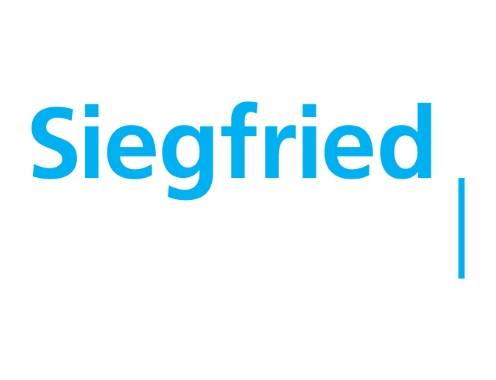
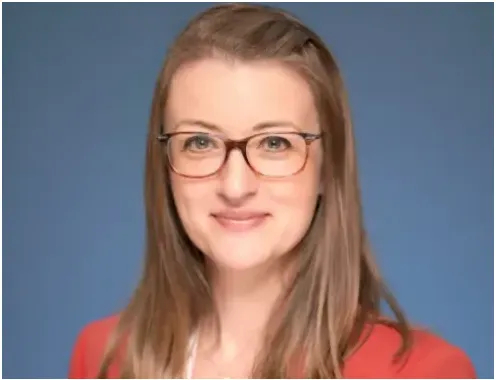
Cristina Stefan - Global Finance Director at Orbia Building and Infrastructure (Wavin)
Cristina Stefan is a Global Finance Director for Orbia Building & Infrastructure (Wavin) – a global leader in innovative, healthy and sustainable solutions for the building and infrastructure industry. From clean water distribution to accessible sanitation, climate resilience to comfortable living spaces, Orbia B&I collaborate with municipal leaders, engineers, and contractors in 90+ countries worldwide, to future-proof communities and make a positive impact on people’s lives.
We took 30 minutes to tap into Cristina’s thoughts on diversity and inclusion, the skills that separate the good from the great in finance and her advice on standing out in an increasingly competitive job market.
How can leaders create diverse teams?
Firstly, I think you need open-minded leaders in place who truly and authentically believe in the power of diversity. Leaders who respect, empower and develop their employees inclusively, who recognise what makes each individual unique and can build on their core competencies and strengths.
Company culture is also hugely important. At Orbia B&I, embracing diversity is a core value – it’s embedded in everything we do and it’s constantly evolving. If you think about it, diversity is quite easy to measure – it’s looking at the gender of those in the top positions, how many people are with disabilities are hired, what’s our ethnicity split, what’s our LGBTQ+ representation, etc.
Less tangible – and therefore less easy to measure – is inclusion. For me, inclusion is the fuel that powers the diversity engine. It’s how we encourage our minority groups to collaborate and develop, feel valued, respected and empowered. Just one example would be looking at how we create equal opportunities and flexible working options for mothers returning to work after maternity leave – so they feel supported and able to thrive.
One of Orbia’s key success markers in improving diversity is to increase the representation of women and other underrepresented groups throughout the five business groups and leadership pipelines. To support us in achieving those objectives, the company has developed initiatives from talent acquisition guidelines to our Orbia Women’s Network (OWN) mentorship programme, which is helping to accelerate the development and visibility of female talent in what tends to be a very male-dominated industry. I’m a proud member and mentor myself – and because I’ve got mentees in different Orbia business groups, it brings great networking opportunities, too. It’s a good example of inclusion in action, because it encourages people to speak up, to turn challenges into opportunities with a positive mindset, show empathy and benefit from different perspectives. That blend of diversity and inclusion is how you create strong, brave teams and a working environment where everyone can perform at their best.
Which key drivers to success at Orbia B&I do you watch most?
Orbia is a proudly purpose-driven company – and at Orbia B&I, that purpose is to advance life around the world by building healthy, sustainable environments. Our employee value proposition is to bring this purpose to life. It’s a guiding principle for the way we think and act when facing some of the world’s greatest challenges, and it’s how we create products and services that improve people’s lives. For 60 years, we’ve delivered products, systems and services that create a safe & efficient water supply, better sanitation and hygiene and climate-resilient cities with advanced, energy-efficient buildings that enhance the indoor experience while minimising environmental impact. So sustainability is at the heart of what we do – and in tandem with ever-evolving innovation targets, we have multiple initiatives in place around reducing greenhouse gas emissions and waste, while improving energy efficiency.
I also keep a careful watch on B&I’s ability to adapt and flex – how well we’re optimising investments, and how agile we’re able to be in the face of market challenges, our ability to transform in order to perform, so to speak. Last but not least, giving the highest quality of service is always going to be hugely important – listening to our customers, meeting their needs and building strong relationships that stand the test of time.
What changes have you seen in the Netherlands employment market over the years – and what do you think has driven them?
It’s been nine years since I moved here – and in that time there’s been a noticeable shift. The market’s become much stronger and tighter, with more and more companies expressing a preference for native, Dutch speaking candidates over international talent. I can see the sense in this where a role requires lots of direct interaction with local authorities, or a strong working knowledge of Dutch legislation, but it could also be perceived as quite discriminatory. It’s so important to be consistent – and to promote diversity as a core company value (as many do), you have to walk the talk and demonstrate it.
I’m proud that at Orbia, we’ll always encourage people with diverse backgrounds to apply, using our talent acquisition process to eliminate bias and create equal opportunities across the business. Following the pandemic in particular, we’ve also seen a much higher demand for flexibility and hybrid working, which has brought new matching challenges to the recruitment process – for all companies.
How do you foster a positive and productive work environment, especially in challenging times?
Through leading by example. For me, that means aligning what you say with what you do, aligning ‘what’ with ‘how’ and being authentic with your teams. You sometimes need to be brave and have difficult conversations – particularly if priorities and deadlines may affect an employee’s work/life balance. Sometimes those conversations are constructive, sometimes not – but you always learn from them. You also need to be willing to challenge the status quo – especially if you see a simpler way to achieve the same outcome. That’s always a win-win.
People respond more positively to you when you show empathy, vulnerability and implicit trust. When you treat your team as business partners, not simply as doers, and give them context, they’ll be far more motivated to walk the business mile with you.
How can a job seeker stand out in the current market?
You’ve got to be authentic – show a genuine interest in the role and the company, research the people who are interviewing you and have relevant questions up your sleeve. This is, of course, assuming you’ve reached the interview phase – which has become increasingly difficult lately with the rise of AI, even for really good quality candidates.
It’s something of a paradox that while authenticity is key, you need a CV that’s carefully tailored with key words and phrases that will pass automated screening. Given these challenges, networking and taking advantage of internal referral schemes is something I highly recommend – because this can enable you to skip the initial screening stage of the recruitment process altogether and get to talk to a person about your experience with a real chance of being able to influence the outcome
In an interview situation, I always appreciate assertiveness in a candidate – someone who knows when they need to pause and recalibrate in order to get their point across more directly. I also admire honesty and realness – answering questions in a concise way with examples, rather than giving a prefabricated speech, and sharing details about their personal life, hobbies etc.if they feel confident or comfortable with it. This helps me work out whether they’ll be a good fit – not just culturally, but within the team.
So in a nutshell, my advice to potential candidates would be – dare to be different. Energise, engage and connect with your interviewer – don’t just answer their questions. And a smile goes a long way. Finally, treat rejections as opportunities to learn and improve, and send a thank you note to try to understand what you could have done differently to sharpen your gravitas next time.
How do you maintain a sense of joy and enthusiasm in your professional life?
For me, it’s seeing the bigger picture and my part in that – working with a sense of purpose, towards a greater good. Knowing the context – the ‘why’ – behind my work energises and motivates me. I need to feel engaged. From a practical point of view, I love finding ways to simplify complexity without lowering the bar. I love the feeling of building something and ‘making my mark’ – improving things and creating space for further growth. I’ll also find ways to celebrate small wins and practice gratitude, and I never underestimate the power of a thank you. Maintaining a good work-life balance also helps me stay ‘tuned’, in sync and enthusiastic about my professional world.
I’ve held numerous different finance roles throughout my career, which has taught me a lot about resilience – how to quickly learn and adapt to changing situations, whether that’s differing ways of working between industries, using new technologies or navigating company politics. Challenge and change are both huge motivators for me.
In your opinion, what are the most underrated skills or qualities in Finance?
So many people perceive finance as just number-crunching, but it’s about so much more than numbers. One of the most underrated skills is actually communication – telling the story behind the numbers. The ability to clearly and concisely explain complex financial issues to a diverse range of colleagues or customers (so that they truly understand) should not be underestimated.
Showing empathy is also key. Again, finance isn’t just about numbers – it’s about people too. Employees want to feel valued and part of a bigger story, not just enablers to achieve key deliverables faster. We have to engage, respect people’s time outside of office hours, check in and ask them how they’re feeling – not just when this or that project will be completed. Again, it’s about treating people as valued partners, rather than producers of data or analysis.
We also need critical thinkers – people who can place financials within the wider context, understand what numbers tell you and how to convey that to different audiences, evaluate financial data, make sound judgements, identify patterns and outliers to assess risks, identify opportunities and solve complex problems. And finally, emotional intelligence goes a long way. When you’re able to put yourself in other people’s shoes and preempt their emotions, you foster better quality interactions, better teamwork and better outcomes all round.
How do you make sure your strategic decisions align with both Orbia’s values and market demands?
Every decision I make is guided by Orbia’s future-fit model – those non-negotiable expectations that the company has for its employees and leaders, expectations that will help us advance life around the world. It’s a structure that ensures we work safely, ethically and according to our values – Be Brave, Take Responsibility and Embrace Diversity.
Finance isn’t a back-office function at Orbia. We’re co-pilots and business partners, helping to steer the business by showing them trade-offs and helping them make key, financially sound decisions. To do this, we need people who share the same values – people with a can-do mindset, people who are ready to go the extra mile and who are excited to be part of a company that builds the future with the solutions it creates. So you need a structure, you need a core model – and you also need the right people to apply that model to make sound decisions day-to-day, in everything they do.
Thank you to Cristina for speaking to Hannah Mallia, Director in our Finance & Accountancy recruitment team in the Netherlands.
Views and opinions contained within our Executive Interviews are those of the interviewee and not views shared by EMEA Recruitment.
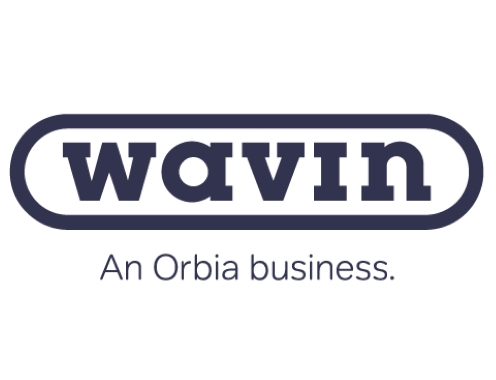
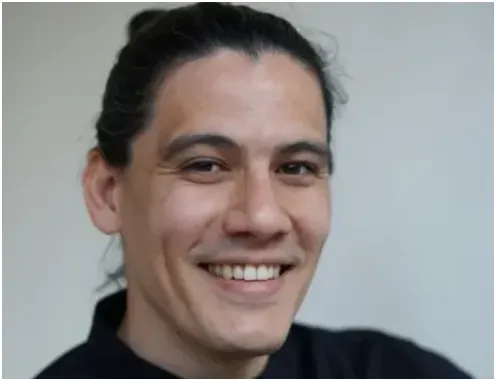
Matthew Day - Head of Financial Planning and Analysis at Travix
Commercial and strategic finance leader Matthew Day is Head of Financial Planning & Analysis at Travix – a global online travel company headquartered in Amsterdam. Having spent the first 11 years of his career traversing business and finance roles at Nike, Matthew reflects on the benefits that came with making diagonal and horizontal moves – and shares the values that have shaped his open, collaborative management style.
Tell us about the most memorable moment in your career to date…
I made a few different moves throughout my time at Nike, but the most memorable was moving from my role in a centralized geography business unit to a much broader position in a territory as a functional lead (commercial finance). It was a move that got me into the thick of the business – much closer to the marketplace and the consumer, which I really wanted. It meant I had much greater exposure and visibility to others within the business, and it gave me a strong dotted line to the General Manager of that territory.
The GM already knew me and my background at Nike thus far, and that I was interested in stretching myself in roles beyond finance. There was no Commercial Director at the time, so she took a leap of faith and asked me if I could help fill that gap. I jumped at the chance and embraced it, and she trusted and encouraged me to take a steep learning curve, to make mistakes along the way and ultimately gave me a chance to grow and add value within the team.
It was challenging, but it gave me exposure to commerce, go-to-market processes, sales and account management, as well as marketing and inventory management – deepening my understanding of our product and the customer journey.
It also opened doors and proved to others that I was a credible leader outside of finance. This proved pivotal in my next position, when I moved back to the Nike brand into a commercial, strategic account management role. I had buyers I needed to work with to make sure we had a strong, commercial strategic plan – so I needed to understand upcoming products, how we were going to sell and market them, and lead a cross-functional virtual team.
What risks have you taken throughout your career and how did they help you grow?
Broadly speaking, it’s the fact that I chose not to take a conventional, vertical, upwards career path. I love business, so I didn’t want to specialise in finance – I wanted to build cross-functional relationships, learn and become the best generalist I could possibly be. It's helped me build credible relationships and have productive, constructive conversations with experts across functions, and taught me so much about different processes, businesses and industries.
I’ve seen my peers progress quickly within specific functions, which has felt disheartening at times – but I’m so glad I took the time and opportunities to move horizontally, and build a wider portfolio of whole-business knowledge and experience along the way.
What would you say is the most rewarding part of your role?
It’s the trust I’ve built – not just with my manager, but with my team too. It’s quite daunting coming into a new organisation, especially in an industry where you have limited experience. But I know the concepts of business, of account management, sales and marketing – and while the industry is different, the fundamentals remain the same. I’ve got ideas to put in place and I’m trusted to go ahead and act on them. That’s the most rewarding part – being challenged in exciting new ways and being part of the change.
What strategies would you suggest to someone who’s looking to pivot their career into a different industry?
It’s all about mindset. Finance professionals tend to be quite analytical, meaning we often focus on what’s wrong and how we can fix it. So if we’re looking to switch roles or functions, we’ll focus on the experience we don’t have – rather than the transferrable skills we do have, whether it’s the ability to manage stakeholders, to communicate, analyse, propose and influence… there’s so much you can carry over.
You need to focus on your strengths. If you focus on your weaknesses, all you’re going to do is make something that’s bad not-so-bad. Far better to hone your talents and turn good into great. That’s how you add value. And the things you’re not so good at? Well, that’s the beauty of a team.
Think of it like a game of football. You've got 11 players on the pitch and they're all there to win, but you don't want 11 goalkeepers playing in every position. Everybody has a different role to play. So, know what it is that you're good at and master it. Unless you're going into rocket science, it's not rocket science! There are always skills you can transfer.
What advice would you give to someone starting their career in financial planning?
It would be to look at it not just as a financial role but as an extended part of a cross-functional business team.
You’re a business partner who’s there to understand and communicate the financial implications of every decision that’s made. Every strategic move – whether that’s commercial, logistics or people-centred – comes back to the financials. So have an open mindset. Don't just see things in black and white. At the end of the year, if you don't hit the budget, it doesn't mean it's a failure. Things change along the way, and you've got to be able to adapt as you go.
Bear in mind, too, that the trajectory of your career won’t always be linear. For example, I've seen CFOs also work in sales, tech or IT – so starting in one area doesn’t mean you’ll stay there the entire time. Be open to working in and with different functions – you might just play a crucial role there that’ll make all the difference in your future development.
How do you anticipate the role of FP&A will evolve as AI and automation advances?
One word – data! I've been fortunate enough to work with dedicated financial operations data teams, and looking back now, I realise that they were world-class.
So, I can see that if you can work with and master accurate big data – data you can use end-to-end and integrate across all other parts of the business – that’s going to make the role of FP&A so much more effective. Why? Because you’ll spend less time ensuring the numbers are credible and more time actually analysing them – helping the business make better decisions off the back of what you learn.
What one piece of advice you would give your younger self or a young finance professional?
Take time to figure out who you are and be proud of that person. When you’re just starting out in your career and you meet senior leaders and executives, they can feel like rock stars – and that can be quite intimidating. People want to make a good impression, so sometimes they end up saying things or behaving in a way that isn't authentically them.
You have to focus on what you want, know your values and what it is you're willing to compromise on – and what you’re not.
I see a lot of young professionals saying they want a job “because it looks great”. But I’d ask, is it really what you want to do? Is it something that gives you energy and excites you? Why do you want to do it? If people are honest with themselves, they’re often surprised to discover that what they think they want isn’t actually what they do want. When you constantly question your motives, you can get clarity around what will truly motivate and fulfil you professionally.
How can leaders create diverse teams?
Firstly, you need to put trust in people, believe in them (sometimes more than they believe in themselves) and be willing to take a risk – just like my GM did with me back at Nike.
Some business leaders will bring in people who they've known for a long time and who they feel comfortable with – and while a lot of good can come from that, you risk ending up with a very closed collective mindset.
I think there are both business and cultural benefits to knowing your knowledge and skills gaps and taking risks – celebrating the strength in your existing team, and bringing in new people from different backgrounds, who can offer new perspectives and ways of working.
I also think it’s important to recruit with an open mind – looking for those all-important transferable skills rather than direct industry knowledge or specialisms. Take the risk on yourself, assess what’s missing from your team and don’t just go with the comfortable hire.
How do you foster a positive and productive work environment, especially in challenging times?
Throughout my career, I’ve been managed by people from different walks of life, with hugely differing experiences and perspectives. Some were quite militant and resistant to opening up – and the overall MO was “We need to get this done. Let's do it”.
Others have been more vulnerable. They'll say, “It's a stressful time. I get it and I'm in it with you. I’d love you to do the things that play to your strengths, and I’ll find a way to cover you in those weaker areas”. I’m a millennial manager, so this leadership style really resonates with me.
As a generation, I think we always want to make sure that people feel involved. So, I'm very open with my team. If things aren't ideal, I’ll tell them that. I’ll tell them we've got to make hard choices and that I'm making hard choices myself. It may not be the right choice, but I'm going to take a risk.
It's leading by example, but also showing that you don't have all the answers. And when you do that, you show your team that they don't need to, either. I’ll try to role-model the curiosity to find those answers, proactivity in who I speak to and where I go to find information. We’re people, not robots – so showing creativity and authenticity in the way you handle difficult situations makes all the difference when it comes to creating a positive and productive working environment.
What does the next five years look like for you in your career?
Honest answer – I don’t know.
When I was at university, I used to imagine all the things I would be doing in 5, 10, 15 years’ time. None of those things actually happened – and I think I’m better off for it.
Going right back to the beginning of my career as an intern at Nike, I was a sports-obsessed kid who just wanted to work for a big sports brand. I never set a goal to have the experiences that I ultimately did have, and I’m so thankful for the journey of discovery I went on.
So if I’m looking ahead, I’d say my aims are simple: to continue to being open to new experiences both at home and in work, to fine-tune and be clear on my values, what I'm good at, what I'm not good at, and be confident in that.
My North Star is General Management – but whether or not it happens in the next five years, I'm ok with that. I'll happily move sideways and ‘backwards’ if it keeps me learning. The world’s changing so quickly, you have to be present, stay curious and focus on growing as a human being. When you do that, new opportunities take care of themselves. That’s certainly been my experience over the past 15 years.
What does life outside of the office look like for you?
I’ve recently rediscovered my passion for tennis. Weirdly, when I worked for a sports company, I hardly played – and since leaving I’ve been on the court much more. It gives me so much energy and happiness – along with my dog, Jura , who’s the focal point of mine and my wife’s life.
As much as I want to do well in my career, I work to live – I don’t live to work. Time doesn’t go backwards, so I think it’s important to make the most of what we have. For me, that means being with my family, my wife and her family as much as I can.
Any final words of wisdom for our candidates?
The best managers are those who support your growth, and who help you tap into the things that have helped them in their career.
I've seen people who want to leave a company be treated as outsiders – like they’re not loyal, or only loyal to themselves and their own growth. But I believe it’s our job as both managers and as human beings to put ourselves in other people’s shoes and make them feel good about wanting to develop.
I once admitted to a past manager that I no longer felt I was learning in my role – despite being happy, enjoying what I did and liking the people I worked with. Their reaction was, “let's find those opportunities. And if you need me to share the details of people or agencies who work in this function or this industry, I'll do that for you”.
Having that conversation was so refreshing, because as hard as it was, they didn’t take it personally. I’ve been heavily influenced by that experience, and I encourage every manager to think just as objectively. Just because your star employee is leaving, if you do the right thing and show you trust in them, they’re far more likely to stay in touch and want to work with you again.
Thank you to Matthew for speaking to Kieran Hayes, Recruitment Consultant in our Finance & Accountancy recruitment team in the Netherlands.
Views and opinions contained within our Executive Interviews are those of the interviewee and not views shared by EMEA Recruitment.
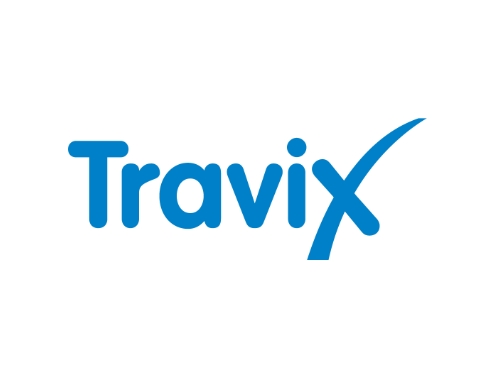
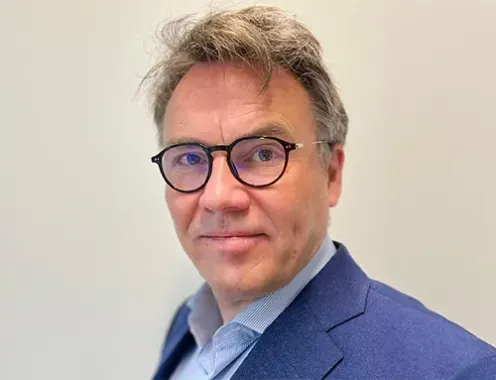
David Hulsenbek - Chief Human Resources Officer at Salta Group
David Hulsenbek is Chief Human Resources Officer for Salta Group in Hilversum – a company that builds personalised, lifelong learning solutions for businesses and educational establishments.
Salta Group employs 3,000 professionals who work for over 30 renowned labels in the training and education industry. We caught up with David to ask who and what’s inspired him over his 26-year career – and what his vision is for the future of the HR function.
What excites you about working for Salta Group?
Even before I joined Salta Group, I was fascinated by the company because there’s simply no one else that does what we do – in either the Netherlands or, we think, in Europe. We have a mission of making lifelong learning possible for everyone. It is great to work with so many professionals who live and breathe this. I’ve worked in consulting and software organisations, but this is my first experience in a company where the marketing & sales team is also at the heart of the business. Next to our engaged education professionals, that is our ‘talent engine’ – the core of our service.
Of course, education is at the heart of our mission. Everyone in the business is passionate about lifelong learning and enabling more people to develop themselves regardless of their age, stage of life or occupation.
When you boil it down, though, to build the services we build and deliver them to the people who need them, we need the very best Sales and Marketing function, run by the very best people. That’s the sweet spot. In HR, it’s not about operations or payroll. The future health of the company rests on having the right talent in place, on great performance management, on succession planning and being transparent with people about their career opportunities.
It’s my job to make sure that our next leadership combines strongly supports and grows our view on lifelong learning and can take the company forward over the next five years – a task I never imagined I’d land on so soon after starting. It’s very exciting.
What’s the most rewarding and energising part of your role – at Salta Group or more generally?
I'm very curious by nature and I love being around people – connecting with them, finding out what makes them tick and supporting them through challenges or periods of change.
I’m a licenced lawyer by trade, and I sort of ‘rolled into’ the HR function when I was looking at the legal side of employee stock options for my graduation thesis and in doing the research met a lot of really nice and interesting people with ‘HR Director’ on their business card.
I think I would always have found this role one way or another, because it’s such a perfect fit for my personality. I love the way that you sit right at the heart of a company, whilst remaining somewhat on the outside – looking inwards. You know everyone and everything that’s going on, because people can be really frank and honest with you. What I like best is balancing all those things. Yes, you can pick sides, certain opinions or arguments – but it’s really about finding solutions and a way to make things work, no matter how that looks.
Sometimes you’ve got to be firm with people, sometimes you need to put an arm around their shoulder. Sometimes there’s really hardcore work to do with unions or councils. And often it’s about making sure people feel they belong – and letting them know how much they’re loved and valued in their roles and help them improve.
A lot of the time, I don’t think people quite realise how very connected they are to the organisation they work in. There’s the legal connection with your employment agreement of course – but more than that there’s the physical connection, the emotional and psychological connection – and beyond that, the aspirations you hold within your company.
A really good HR team understands how all this is constantly at play, for everyone. You have to make sure people are in the right positions where they can grow and flourish, and also be able to have those honest conversations when things aren’t working. I love that – it fits my personality so well. I can’t imagine myself doing anything else.
Is there one leader or manager who stands out in your career – and what was it about their style that resonated with you?
Accenture was the place where I grew up professionally, so to speak – a bit of a ‘first love’ career-wise – because despite seeming tough and businesslike from the outside, it was people-first through and through. Their management was personable, which I’ve always really liked – and despite the enormous scale of the organisation, they really care about the individual and helping them grow in the direction they wanted to.
One of the execs back then ran the technology organisation for Europe. I worked closely with him for 8 years as a business partner, as his HR Manager and later as HR Director in the country that he works in. He was just himself, all day long – never playing a role, no ego, which I always admired and have since emulated.
One of the things he taught me was to never be afraid to say what you think – which sounds easy, but in practice it’s really not! Especially in situations where you don’t understand something and you need to ask questions. You have to trust your judgment and “not be afraid to be the idiot”, as I heard Simon Sinek put it the other day.
Another standout leader has to be the guy who kickstarted my career in 2001, when I was working as a recruiter in Amsterdam. At 27, I was hugely ambitious, and I’d set my sights on becoming a Recruitment Manager.
I went to the HR Director at the time and told him what I wanted – and he said, “That’s great, but you’re not ready for that yet”. I hardly had time to feel bruised by this knock-back before he came to me a few hours later, handed me his car keys and said, “We’re building a new company for Vivendi and Vodafone’s mobile Internet startup. I want you to be the lead recruiter. The team are waiting for you – drive over to their office, have a look and see if you want to do it.” This was a $500 million project, so I could hardly believe my ears. I accepted, of course, and over the next year, the role took me to Germany and then all over Europe – a fantastic adventure.
When I asked this manager why he’d trusted me with such a huge responsibility, he said something that’s always stayed with me: “Sometimes things are scary and new, but jumping and seeing what you discover is something that really suits you. You don’t think you can fly, but you’ve had wings for a long time already.”
Those words resonated at the time and they’ve stayed with me ever since. You only live once – so be authentic, never be afraid and just go for things.
Is there a particular quote or mantra that’s inspired you?
My absolute favourite is John Lennon’s “Life’s what happens to you when you're busy making other plans.” It says so much about the chaos in life – how it’s the small things happening around you – often completely outside your awareness – that you should be looking out for and learning from.
That’s why I don't really believe in 5-year career plans. Yeah, it’s admirable – but it’s much better to go with the flow, leave room for lessons and events you didn’t plan for and see where they take you.
What would you say are the key elements of really building a strong network – both internally and externally?
Again, I think it comes down to that personable approach – being really open and genuine with people. I was with a former colleague this morning, actually – one of the partners who I worked with in my previous role as an interim HR Manager. We really clicked at the time, and he updated me on the progress of one of our projects and gave me some lovely feedback.
We had that human connection which I think is so important in business. Sometimes you hold each other’s hands through the storm, sometimes you learn from one another. I just love when people leave their differences at the door and come together, help each other out, share knowledge and find each other's strengths and development points without ego. It’s so powerful. When there are clear, shared goals in an internal network, when everyone is on board with the business’s strategy, that’s when progress picks up real pace and you start to see an impact.
It takes great communication, explaining your strategy and choices as a company – but if everyone knows what their organisation is about, they can run in the right direction without having to be told. It may feel like a bit of a cliché but it’s true. I still play football every Friday night and you see the same thing – when 11 guys are chasing a ball and one of them scores, everyone’s happy. Why is that? Because it’s fun – and because you did it together.
How is Environmental, Social and Governance (ESG) impacting Salta Group as a business?
Sustainability is high on Salta’s agenda – and so it should be, for all businesses. I think everyone understands now how important it is that we take care of the planet better than we've done in past decades.
What I really like about the whole ESG approach is that (coming from the EU), it’s very structured – and it’s great that as a company, we’re able to do good in the world through more than just our business goals. The advantage of being a bit behind the curve in this area is that we’ve had a lot of players in the market that we can learn from and follow their lead. It’s also an area where people’s personal beliefs naturally produce a lot of energy and effort.
On the board, we’re using the United Nations Sustainable Development Goals to help us drill down into the moral and ethical goals of our company. What do we want to contribute? What do we want our approach to be? You don’t find these discussions in most boardrooms, but this is something we have to do – not just because it’s a formal obligation but because we all have kids and because we want to feel proud of what we left behind, not guilty.
How do you see the HR function evolving in future?
If you look at the trends of the past 10-15 years, it’s clear that technology will play a larger role. New HR information systems are coming along all the time, each one better and easier to implement than the last, with new and improved functionality.
At the same time, it’s a very fragmented landscape – so it's important not to overload people with too many different systems to manage. Ultimately, my vision would be for all these great tools to be sophisticated enough to handle all the exceptions you get in HR, so you can focus more on developing talent than on the complex legalisation of everything.
To take one example, I’ve just met with a colleague who’s relocating to the US for his wife’s job. We appreciate and value him, he wants to carry on working for Salta Group and we want to make that possible. But getting the fiscal and legal side of things straight is incredibly frustrating (and expensive!), to say the least! It shouldn’t be that difficult – there’s so much risk-averse thinking, and it’s hampering us.
Perhaps it’s a Nirvana mindset, but I believe HR should be all about talent.
If you know what you stand for as a company, if you know what kind of people you need, you get them on board and that marriage is strong, then you’re in a position where you can help them and they can help you. That’s when you see real impact, real growth and change for the better.
Thank you to David for speaking to Katie Insley, Associate Director in our Human Resources recruitment team in the Netherlands.
Views and opinions contained within our Executive Interviews are those of the interviewee and not views shared by EMEA Recruitment.
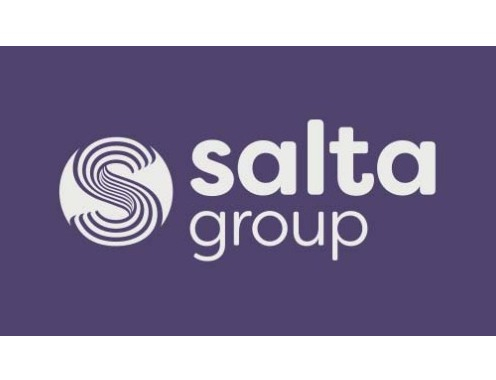
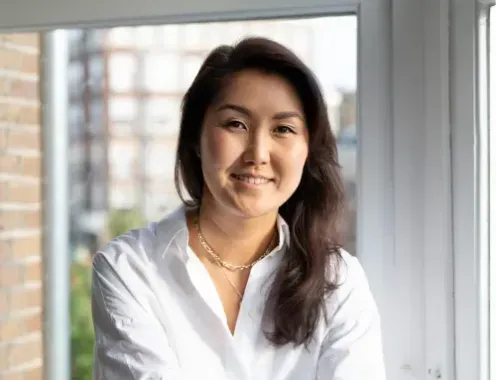
Aryuna McGloin - Financial Planning & Analysis Director at Spryker
Aryuna McGloin is a Financial Planning & Analysis Director for Spryker – a rapidly growing e-commerce software creator headquartered in Berlin.
Aryuna spoke to us about driving ambitious business growth in a forward-thinking, people-centered company, Spryker’s unique and rigorous hiring approach, and why having a personal growth mindset is so important when it comes to standing out from the crowd.
What excites you about working for Spryker?
I started my journey with Spryker about two years ago, having spent more than a decade working for Nike. The move from a large, corporate environment to the much smaller set-up here was a big change for me – and hugely exciting.
Spryker is a leader in the field of composable commerce software and is well respected for its innovative spirit. We’ve been recognized as a Visionary for three consecutive years by Gartner – a leading insights company, which positions and compares players in the major technology markets. That is something we cherish and plan to evolve further.
What struck me first at Spryker was the people – a group of friendly and passionate individuals spread across 50-plus countries who genuinely care about the brand and the business. We call ourselves "The Herd" and are proud to be part of it.
I love Spryker’s FLOW approach to work-life balance, too. We benefit from unlimited holidays and can operate a flexible schedule. So, if you want to pack your morning, then take time out for your children, a walk, a workout – whatever it is – you can.
We’re able to pick up our roles from anywhere, too, so a lot of the younger team members travel from country to country working from different places all the time. I’m a little more tied, due to family commitments (not at all jealous, honestly!), but I’ve had a taste of this kind of flexibility – combining a holiday trip with dedicated working time.
Being fully remote also means we have access to the best choice of talent from all over the world, and our people can live wherever makes them happy, whether that’s city centers or in the middle of the countryside.
How would you describe the culture at Spryker?
It’s very much people-first – after all, our people are the key element of the company's success. We say, that whoever you are, wherever you come from, and wherever you’re going in life, you’re welcome to join The Herd. We aim to ensure that our people feel valued, autonomous, invested, and cared for.
This creates a sense of togetherness where we appreciate so-called herd player qualities. We care about what we work on but also about our impact on other people. Staying conscious of your behavior and how you support others is important. We also are not afraid to make mistakes, accept feedback, and keep an open mind to different solutions.
We attentively hire and develop the right individuals, making sure they are involved in projects and tasks that interest and motivate them, so they stay passionate about their work.
That trickles down to Finance, as well. When hiring, we look for individuals who are curious and proactive to find creative solutions to seemingly mundane Finance challenges – people who don’t just accept the status quo but look for the best answer to a particular problem. During the hiring process, we assess how conscientious, proactive, and open to new ideas they are. It's not a standard way of working, but it’s so effective.
What are the key drivers of success within Spryker?
First, it has to be innovation and effectiveness – both ingrained in our culture and also reflected in our results. We aren’t afraid to run tests and pilots to make sure that we find new and better ways of doing things.
For example, as soon as artificial intelligence came onto the horizon, we quickly created an AI steering committee to help break down barriers to acceptance and find ways to incorporate this into our daily working lives. From there, we developed a framework in which people are celebrated for proposing the best AI solutions for our products.
Secondly, it’s our people. Are we hiring the best talent? We empower our employees to be the most capable and dedicated team that delivers exceptional results.
To that end, learning and development are massive drivers of success, so we offer a wide range of options, from company-wide or team-specific training on our products right through to workshops on problem-solving and presentation skills. We want to help people grow with the company and to come on this journey with us.
How does Spryker minimise bias in the hiring process?
We do this in two ways. Firstly, for every role across the company, we have a list of specific DNA traits that we look for and we shortlist based on these before involving the hiring manager. That way, we can be sure we’re matching them with people who are a cultural fit, regardless of their background or experience.
We also created a final stage in our hiring process, whereby we ask someone who sits outside the hiring function to assess objectively candidates’ future potential, leadership skills, etc. to ensure we continue raising the bar with the people we bring on board.
As for my team members, I’m curious to look at professionals across the whole of Europe, which broadens the horizons and brings a truly diverse group of promising candidates to the table.
How does Spryker retain high-potential employees?
We believe in the power of creating an environment and work culture that everyone wants to be in. I’ve already mentioned the training and development opportunities, so - after that - it’s really about the day-to-day. We make sure people’s roles and responsibilities are clear, and that we’re providing all the necessary onboarding and tools to ensure they’re successful from day one. People need to be able to measure their own progress, so we have constant feedback cycles, salary reviews, and career development plans to ensure we keep them engaged.
Our framework is set up so that employees can get involved in as many projects as they have the capacity for and see the impact of their actions. Coming from a much larger company, that’s something that stood out for me since I started at Spryker – decisions can be made quickly, and executed fast, and you can always see the difference you’re making.
How does Spryker raise awareness around mental health and wellbeing?
The SaaS (Software as a Service) business is notoriously volatile, and things change very quickly, so you have to be resilient and adaptable. We have been running an internal campaign to educate our people on the relevance of the mental health topic.
Our flow approach – choosing your own way of working – helps people to cope with the demands of our industry. We’re also introducing initiatives such as no-meetings days and hours, so you can schedule focused and productive working time without the distraction of plugging into conversations along the way.
Our Diversity & Inclusion team also runs workshops around creating balance in corporate life, and we’ve recently introduced a new employee benefit, giving colleagues access to mental health professionals across the globe. I’ve heard great feedback about it.
What are the biggest challenges you’ll face in your role, and as a business, over the next 12 months?
There has been a big shift in the SaaS business environment. Once upon a time, it was all about growth over profit. Now, it’s very much about both, which of course means a lot of work for my team and leadership teams to ensure we reach our goals.
One subject on many companies’ minds is AI and how it’ll impact strategy over the coming three to five years. We have been working on selecting and incorporating AI tools in the most smart and efficient way.
What is a personal highlight of your career so far?
One that comes straight to mind was in my role as Strategic Finance Director. I was asked to set up a year-long leadership shadowing program, choosing forward-looking individuals from a 400-strong Finance division – people who really wanted to look into innovation and work on disruptive projects with a more agile approach.
The team was made up of a great mix of people at different levels and from different functions – from analysts to directors. I created an environment where they could come up with some really fruitful ideas, and their sessions were a pleasure to facilitate.
Another career highlight has to be my move to Spryker. It wasn’t until I’d started the role that I realized how personally important it is for me to see the impact of my work, and to be able to find new, creative solutions within the Finance function. In this environment, it’s much easier for me to progress new ideas, and influence people and key decisions.
If you could change one thing in your career, what would it be?
I would have made the shift to the SaaS industry earlier. I worked at Nike for ten years, built up a lot of experience, and worked with amazing people, but it was a long time in one place. I knew I wanted to make a shift, but I wasn’t sure to what or how I’d get there. It’s exciting to discover a life outside that environment and get my teeth into something new.
What risks have you taken in your career to reach the level you’re at now?
I’ve been consciously intentional about any changes I’ve made. Some people would call it risky moving countries, changing industries, taking temporary contracts for maternity cover with no guaranteed future, but my main motivator has always been, does this role fascinate me?
I think the key to success is doing something you like for a business that interests you. When risks are well thought through, they usually pay off.
What advice would you give to someone starting their career in Finance?
I’m a big cheerleader for personal and professional development. The world is changing so fast, especially within Finance, so you need to stay up to date with the latest trends in the market, assess what skills you need, and keep learning.
I use a range of different tools to keep myself well in-the-know – from LinkedIn Learning to Coursera, which offers some great SaaS-specific training.
Another piece of advice would be to focus on building trust with people you work with, whether they are your peers or business partners. This goes a long mile in any role but in Finance it's even more important.
How can a job-seeker stand out in the current market?
I’ve always said that whatever you do in your current job, do it to the best of your ability. That way, the references you get will be your biggest selling point. Or, if you’re going for a role within a company you already work for, don’t be afraid to go and talk to the hiring manager and ask for their feedback.
You also need to find a way to show off the qualities that don’t always shine through on a CV or your LinkedIn profile, like proactivity, problem-solving, emotional humility, and passion for your industry or role.
What are your best hiring experiences?
The best interviews are always the ones where a candidate shows curiosity and interest in the company and the industry. They’ve gone the extra mile with their research – not just Googling the top-line facts but going deeper to look at business goals and how we’re positioned against our competitors. These are also people who show strategic thinking and willingness to learn – even during the interview.
I love asking them problem-solving questions where there’s no right answer. Well-prepared, passionate, and motivated individuals can discuss topics outside of their comfort zone and accept any mistakes they might make.
What’s the last thing that made you smile?
I have a nine-year-old daughter and a five-year-old son, and I may be biased, but they’re very funny! Before this interview, I was sitting in my office working and I overheard part of a conversation my little boy was having with his nanny – catching him express the random thoughts that come into his head is hilarious.
We don’t have family living nearby, so the support I get from my partner and our childminder is as vital to my professional life as anything else. It means I can be fully present with my work, and then I can be fully present with my children – and I’m so grateful for that.
Can you recommend any great reads?
I’ve just finished, Dare to Lead by Brené Brown – a super helpful and practical guide to being humble and vulnerable in a leadership role.
Another is a bit unusual. It’s called The Accidental Creative – How to be brilliant at a moment’s notice, by Todd Henry. It’s all about how to be prolific and creative in your life and work, with lots of great tips on planning and managing your day.
What’s your favourite motto and why?
It’s actually written on my phone case – “Remember my vision.”
It was a career coach at Nike who suggested having physical reminders of my goals all around me. We grab our phones all the time, so this keeps me mindful of where I’m going and prevents me from veering off track. It’s a good little tip for anyone passionate about personal growth.
Thank you to Aryuna for speaking to Georgia Wright, Director in our Finance & Accountancy recruitment team in the Netherlands.
Views and opinions contained within our Executive Interviews are those of the interviewee and not views shared by EMEA Recruitment.
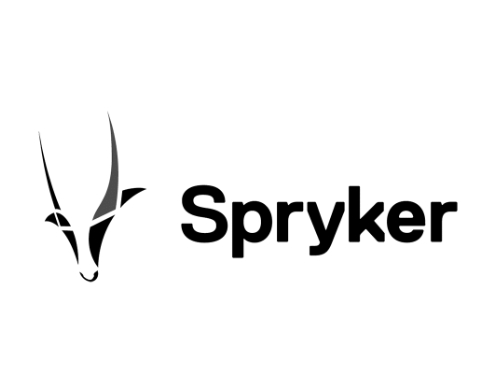







You can also use your social account to sign in. First you need to:
Accept Terms & Conditions And Privacy Policy